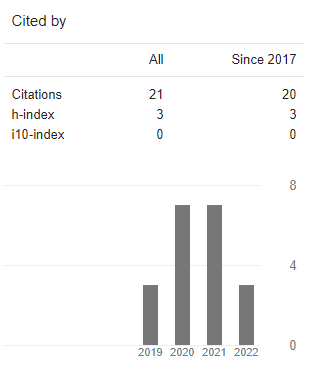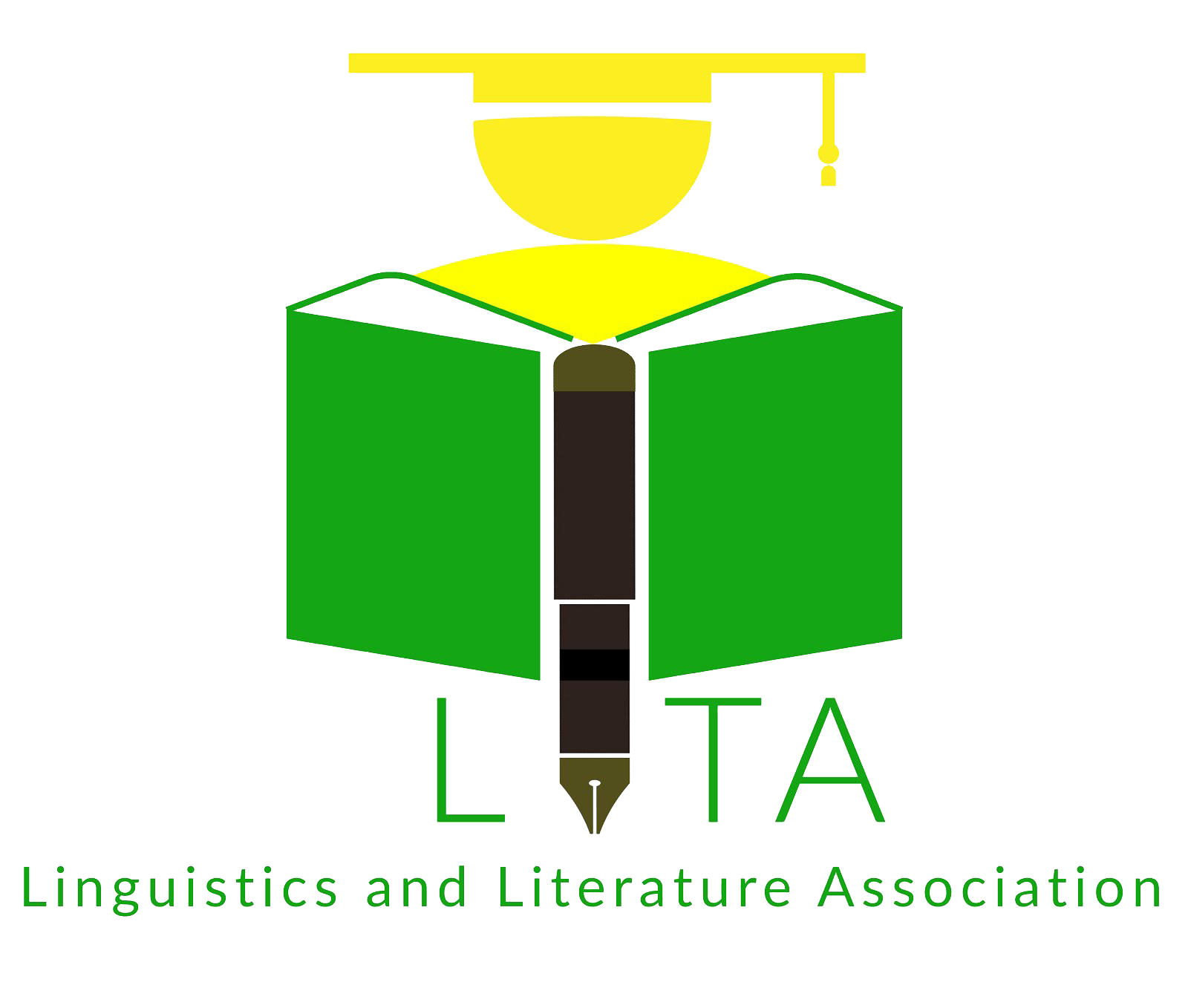Evil Society in Ursula K. Le Guin’s “The One Who Walk Away from Omelasâ€
DOI:
https://doi.org/10.21776/ub.alphabet.2020.03.01.01Keywords:
Evil society, child sacrifice, ignorance, laws, cowardiceAbstract
This research analyzes the evil society portrayed in Ursula K. Le Guin’s “The Ones Who Walk Away from Omelas.†The analysis focuses on how the citizens of Omelas commit such an inhuman act in the name of the city’s prosperity, thus, comes the term evil society. This research is descriptive and qualitative in nature. The data are taken from the description of the confined child and the people of Omelas. To elaborate on the portrayal of evil society within the story, the researchers employ Staub’s (1999) concept of evil actions. The concept details the definition of evil and its roots. The findings show that the evil society in the short story is identified by the evil acts that the society commits: the child sacrifice, the citizen’s ignorance, and the abiding laws.References
Army Study Guide. (2020). How to use pace count to measure ground distance. ArmyStudyGuide.Com. https://www.armystudyguide.com/content/army_board_study_guide_topics/land_navigation_map_reading/how-to-use-pace-count-to-.shtml
Bennett, B. (2005). Through ecofeminist eyes: Le Guin’s “The Ones Who Walk Away from Omelas.†English Journal, 94(6), 63. https://doi.org/10.2307/30046506
Graham, B. (2022). The evil of ignorance. Sutori. https://www.sutori.com/en/story/the-evil-of-ignorance--VPThuW7BdAE8JHbBwuforu8p
Güranç, M. (2019). An analysis of the utopia question in Ursula Le Guin’s “The Ones Who Walk Away from Omelas.†Journal of English Language and Literature Club, 1(2), 36–39. https://dergi.ingilizedebiyati.net/cuidek/article/view/94
Hackforth, R. (1946). Moral evil and ignorance in Plato’s Ethics. The Classical Quarterly, 40(3–4), 118–120. https://doi.org/10.1017/S0009838800023442
Hirsch, A. K. (2016). Walking off the edge of the world: Sacrifice, chance, and dazzling dissolution in the Book of Job and Ursula K. Le Guin’s “The Ones Who Walk Away from Omelas.†Humanities, 5(3), 67. https://doi.org/10.3390/H5030067
Horne, M. (2008). Evil acts not evil people: Their characteristics and contexts. Journal of Analytical Psychology, 53(5), 669–690. https://doi.org/10.1111/j.1468-5922.2008.00759.x
Le Guin, U. K. (1979). The ones who walk away from Omelas. In X. . Kennedy & D. Gioia (Eds.), Literature: An introduction To fiction, poetry, drama, and writing (10th ed., pp. 248–253). Pearson Longman. https://opac.perpusnas.go.id/DetailOpac.aspx?id=508272
Mamola, G. (2018). Walking towards elfland fantasy and utopia in Ursula K. Le Guin’s “The Ones Who Walk Away from Omelas.†Extrapolation, 59(2), 149–162. https://doi.org/10.3828/extr.2018.10
Miedema, D. (2004). Child sacrifice in the western world. CedarEthics: A Journal of Critical Thinking in Bioethics, 4(1), 5–7. http://digitalcommons.cedarville.edu/cedarethics/vol4/iss1/2
Staub, E. (1989). The roots of evil: The origins of genocide and other group violence. Cambridge University Press.
Staub, E. (1999). The roots of evil: Social conditions, culture, personality, and basic human needs. Personality and Social Psychology Review, 3(3), 179–192. https://doi.org/10.1207/S15327957PSPR0303_2
Veit, A. (2020). Scapegoats in The Ones Who Walk Away from Omelas, The Lathe of Heaven and The Left Hand of Darkness by Ursula K. Le Guin [Digitalna Knjiznica Univerza v Mariboru]. https://dk.um.si/IzpisGradiva.php?id=76989
Wandemberg, J. (2017). Why ignorance is evil. Jcwandemberg.Medium.Com. https://jcwandemberg.medium.com/why-ignorance-is-evil-6f554cdd791
Wilson, K. (Ed.). (1997). Short stories for students (Vol. 2). Gale Research.




















